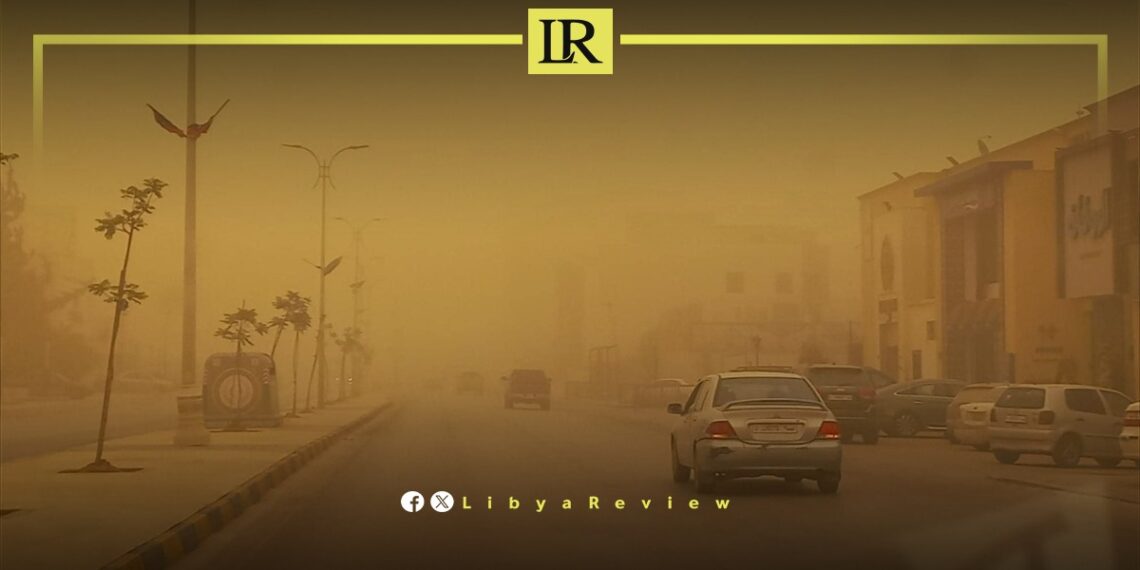On Sunday, the Derna Security Directorate, alongside the National Safety Authority and other relevant departments, held a meeting to outline the emergency measures necessary for the sandstorm expected to impact eastern and southern Libya in the upcoming few days.
Fathi Al-Karimi, head of the National Safety Authority in Derna, announced a high state of emergency in response to the expected adverse weather conditions. The emergency measures include the deployment of firefighting vehicles across strategic locations, particularly in regions prone to wildfires, such as Ain Mara and Karsa, to effectively manage any fires and reduce potential damage.
Rashid Al-Saghir, a meteorology chief at the Vision for Astronomy and Applications Institute, provided insights into the origins of the storm—a desert low-pressure system characterized by an unusually low atmospheric pressure of 900 millibars. This condition is predicted to generate strong southern winds, reaching speeds over 50 kilometers per hour, particularly on Monday and Tuesday. These winds are likely to lift vast amounts of dust and sand, significantly reducing visibility, especially in areas like the Gulf region, Benghazi plains, Green Mountain, Al-Battan, and the oases.
The peak of these winds is expected early Tuesday morning, especially affecting the Green Mountain region, where temperatures might exceed 40 degrees Celsius. Visibility could be severely reduced, posing risks to vehicular movement.
Dr. Fahmi Basheer, an ENT specialist at Al-Hawari Specialist Hospital, emphasized the importance of preventive measures for residents, especially those with sinus and respiratory conditions, to mitigate health risks during the sandstorm. He recommended staying indoors unless absolutely necessary, wearing medical masks when going outside, sealing homes against dust ingress, maintaining hydration, and regularly cleaning nasal passages with saline solutions.
For those with sinus issues, Dr. Basheer advised using seawater nasal sprays before and after exposure and taking antihistamines to alleviate congestion and irritation. Asthma patients should adhere to regular inhaler use, monitor symptoms closely, avoid other allergens, and consult their doctor for an emergency medical plan tailored to sandstorm conditions.
These comprehensive preparations and health advisories underscore the Libyan authorities’ commitment to public safety and health in the face of potentially hazardous natural events.


